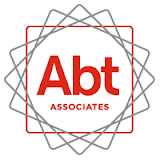Enumerator Consultant - USAID Health System Sustainability Activity - Timor Leste
Organization Overview:
Abt Associates is a mission-driven, global leader in research and program implementation in the fields of health, social and environmental policy, and international development. Known for its rigorous approach to solving complex challenges, Abt Associates was ranked as one of the top 20 global research firms in 2012 and also named one of the top 40 international development innovators. The company has multiple offices in the U.S. and program offices in nearly 40 countries.
Abt has long
been at the vanguard of health systems strengthening and innovation.
Since 1989, Abt has worked with USAID and private and public sector
stakeholders to modernize approaches for sustainable
health financing. Abt’s technical expertise in health systems
strengthening includes health resource tracking, human resources for
health, health policy and strategy development, developing clinical
guidelines, and working with private health providers. Additional
information can be found at: https://www.abtassociates.
Background :
As one of the world’s newest democracies, Timor-Leste has made impressive strides in rebuilding its infrastructure, institutional frameworks, democratic processes, and core human resources. However, health system challenges have impeded progress on key health indicators, as evidenced by the high levels of malnutrition and child morbidity and mortality, and relatively low levels of family planning and regular handwashing. The government of Timor-Leste (GOTL) faces challenges that restrict its ability to govern, finance, and deliver quality, affordable, and essential health services effectively, transparently, and sustainably. These challenges include limited institutional capacity for evidence-based decision-making; challenges with training, recruiting, maintaining, and evaluating human resources for health (HRH); underutilization of social and behavior change (SBC) activities that target healthy behaviors; and low levels of advocacy and participatory governance.
The LHSS Timor-Leste Activity is known in-country as the USAID Health System Sustainability Activity. The USAID Health System Sustainability Activity aims to create a more resilient, self-reliant, efficient, responsive, and adaptable health system through the following objectives:
- Strengthening health sector governance.
- Strengthening health sector workforce management.
- Improving healthy behaviors; and
- Improving civic engagement and advocacy for health systems strengthening.
Objective:
The USAID Health System Sustainability Activity Timor-Leste seeks 6 short-term consultants with qualitative research skills to work as enumerators to support data collection, translation and transcription, and contributions to analysis, report writing and results dissemination for a social and behavior change formative research study in Timor-Leste from March - April 2022. The study will take place in six municipalities and comprises participatory action research sessions and key informant interviews. The qualitative research team will work under the guidance of the Project’s Senior Researcher and will be expected to collaborate with an international team composed of the Project’s SBC team in Timor-Leste and Senior Advisors for SBC & Community Health. The study will be a key element of the GOTL’s Ministry of Health’s problem analysis and will help the project understand: Evidence and knowledge gaps identified from the comprehensive literature review and key informant interviews; Effectiveness of existing SBC interventions in Timor Leste; Community, service provider and stakeholder perspectives on key findings from the comprehensive literature review and key informant interviews; and, Perceived barriers and potential solutions to the adoption of priority behaviors.
The in-country research team will carry out participatory action research sessions and key informant interviews in six municipalities to understand:
- Which combination of key determinants, including social and gender norms need to be addressed to support specific household behavior change for inclusive RMNCAH+N
- What solutions exist that can be leveraged to accelerate processes of social and behavior change in support of GOTL’s strategic goals.
The requirements of the field research are to manage and collect the data required for the study following a research protocol and ensuring high quality. The specific objectives of this scope of work may include:
- Successfully complete the research training and demonstrate capacity to carry out data collection through a pilot study.
- Successfully complete up to six participatory action research sessions, and approximately 18 key informant interviews in relevant local languages.
- Recruiting participants that meet the study criteria in each municipality in advance of the fieldwork
- Collating data and maintaining recorded data files securely
- Contributing to translation and transcription into English, giving attention to accuracy and ensuring confidentiality.
Key findings from the research will be used by the GOTL to develop a national social and behavior change (SBC) action plan which will enable it to identify and target the right audiences and reference groups around specific social and gender norms; identify key information and delivery channels; and engage community members in the development of solutions to address needed SBC to improve RMNCAH+N outcomes.
Key Responsibilities:
The research enumerators will receive remote coaching and oversight from the Project’s Senior Researcher based in the United States. The qualitative research team will carry out the following responsibilities for the formative research study:
- Participate in research protocol training/orientation and pilot testing including feedback session to finalize the research tools.
- Participate in research kick off meeting
- Under the guidance of the senior researcher and SBC Team in Timor-Leste, deliver participatory action research sessions and key informant interviews in six municipalities strictly following the study protocol
- Conduct daily quality control review of recorded data and notes from each participatory action research sessions and key informant interviews
- Data collation and management
- Review and contribute to report and presentation of study findings for national stakeholders in close collaboration with the SBC Technical Lead and the senior researcher
- Support the dissemination of results through validation workshop
- Coordinate, and collaborate with USAID Health System Sustainability Activity staff and partners to implement cross-cutting activities
- Support the COVID-19 related activities and training of the Activity.
- Development of case studies and success stories from LHSS Timor-Leste interventions to the LHSS’s Knowledge Management / Communications teams
- Actively facilitate and participate in relevant meetings, technical working groups, conferences, etc. as necessary to share knowledge generated through USAID Health System Sustainability Activity interventions and to represent the Activity.
The enumerators will provide the following services and products during the consultancy from March – April 2022, for 29 days of work.
The start date may vary depending on when the applicants pass the required background check. The consultant will receive payment at the end of the consultant agreement once Abt Associates accepts all completed services and products listed below.
|
Milestones 1 |
|
|
|
| ||
|
Requested services |
# Days |
Deliverable/product |
|
| ||
|
Participate in a remote training on SBC formative research data collection including the pilot testing and feedback session |
3 |
Brief report on lessons learned |
|
| ||
|
Work with USAID Timor-Leste SBC Team and Senior Researcher to finalize the research tools |
2 |
|
|
| ||
|
Milestone 2 |
|
|
|
| ||
|
Request services |
# Days |
Deliverable |
|
| ||
|
Conduct recruitment of participants and organize PAR session in the 2 communities |
2 |
Brief report and lessons learnt |
|
| ||
|
Conduct data collection in 2 municipalities through participatory action research (PAR) with communities and key informant interviews including in Dili |
12 |
Notes, and audio recordings from participatory action research sessions. |
|
| ||
|
Conduct key informant interviews with national key stakeholders
|
7 |
Notes and audio recordings from PAR sessions. |
|
| ||
|
Support data translation and transcription, and contribute to review and analysis from participatory action research sessions and key informant interviews. |
2 |
Brief report and lessons learnt |
|
| ||
|
Milestone 3 |
|
|
|
| ||
|
Requested services |
# Days |
Product |
|
| ||
|
Participate in the validation workshop to key stakeholders and provide inputs to the finalization of the research report |
1 |
brief report and lessons learnt |
Qualifications:
- Experience in qualitative and participatory research methodologies
- Excellent communication skills
- Experience in conducting interviews
- Experience in undertaking qualitative data collection with groups (focus groups or participatory methods)
- Fluency in Tetum language.
- English and local dialect are desirable but not essential
- Must be able to be physically mobile (i.e., be able to walk) to remote villages and sub-villages (aldeia)
- Flexibility; respectful of schedules planning, and timetables; willingness to adhere to the planned schedule
- Capacity to follow the research protocol and study specifications giving attention to quality assurance and other study criteria.
Period and Location of Performance:
- A training/orientation on research protocol will take place in Dili for one full day and another two days for pilot testing in the community.
- Data collection will take place in 6 municipalities (Ermera, Dili, Covalima, Baucau, Manufahi and RAEOA).
- Contributions to analysis and reporting includes virtual participation and presence in Dili.


.png)






0 Comments